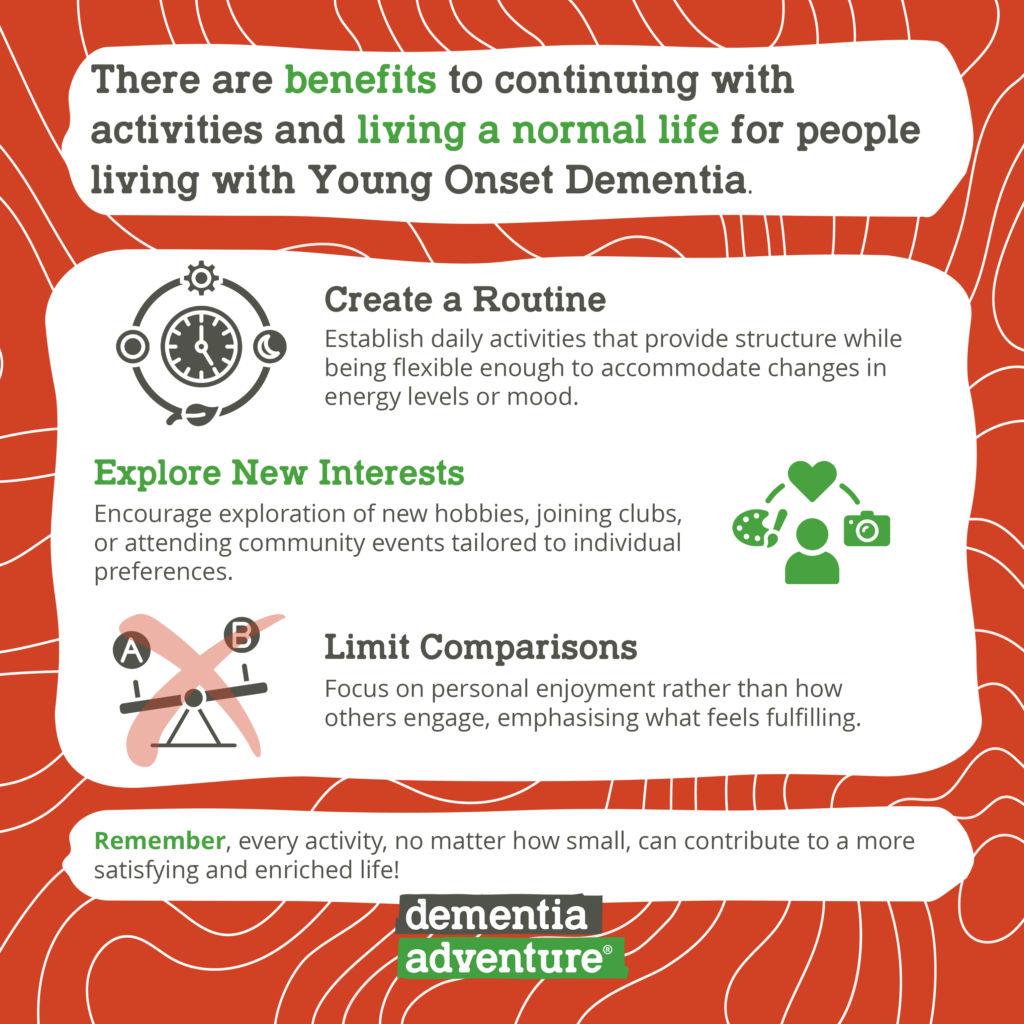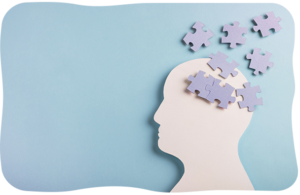Living with young onset dementia presents unique challenges, but maintaining an active and engaged lifestyle can offer significant benefits. Participating in daily activities and routines can help individuals enhance their quality of life, preserve cognitive function, and maintain a sense of self. This information sheet highlights the key advantages of staying engaged in various activities.
1. Cognitive Stimulation
-
Maintaining Cognitive Function: Regular participation in activities can help stimulate the brain, potentially slowing the progression of cognitive decline.
-
Improving Memory and Focus: Engaging in puzzles, games, or learning new skills provides mental challenges that can improve memory retention and attention span.
2. Emotional Well-being
-
Reducing Feelings of Isolation: Staying active and involved promotes social interaction, which can alleviate feelings of loneliness and isolation often experienced by those with dementia.
-
Enhancing Mood: Activities that bring joy, such as hobbies or social gatherings, can boost happiness and reduce symptoms of anxiety and depression.
3. Physical Health Benefits
-
Promoting Physical Activity: Maintaining a routine that includes physical activities, like walking, dancing, or gardening, contributes to overall health and fitness.
-
Preventing Additional Health Issues: Staying physically active can help manage weight, improve cardiovascular health, and reduce the risk of other chronic conditions.
4. Maintaining Independence
-
Empowerment Through Choice: Continuing to engage in daily activities—that individuals enjoy—promotes a sense of autonomy and control over their lives.
-
Daily Routines as Anchors: Familiar routines provide structure and stability, which can be comforting and help reduce confusion.
5. Social Connections
-
Strengthening Relationships: Continued involvement in social activities can deepen connections with family and friends, fostering emotional support and shared experiences.
-
Building New Relationships: Participating in community events or clubs can open doors to new friendships and support networks.
6. A Sense of Purpose
-
Engaging in Meaningful Activities: Pursuing hobbies, volunteering, or participating in community events provides a sense of purpose and can enhance self-esteem.
-
Legacy and Contribution: Many individuals find fulfilment in sharing their skills and experiences with others, which can have a positive impact on their sense of identity.
7. Enhancing Life Satisfaction
-
Living Life Fully: Engaging in a variety of activities allows individuals to make the most of their time, experience joy, and create lasting memories.
-
Cultivating Passions: Continuing hobbies or exploring new interests fosters a sense of adventure, encouraging personal growth and enjoyment.
Conclusion
For individuals living with young onset dementia, continuing to participate in activities and maintaining a normal life can significantly improve well-being and quality of life. Although challenges may arise, focusing on engagement, social interaction, and personal fulfilment can create a more enriching experience.

Facebook
Twitter
LinkedIn








